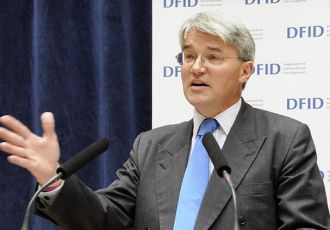UK to change development aid to Sudan
By Toby Collins
March 5, 2011 (LONDON) – In a major shakeup of Britain’s aid policy, London announced a new set of programmes in north and South Sudan, focusing on providing clean water; women’s education and justice; health programmes and food security.

The United Kingdom’s International Development Secretary, Andrew Mitchell announced the plans on 4 March, as part of a change in the way the British government will tackle poverty, saying “This Coalition Government is taking a tougher, more hard-headed approach on getting value for money in aid.”
The Coalition Government, which has been in power since May 2010, was formed by the Conservatives and Liberal Democrats when none of the parties achieved an overall majority in the general election. It has been implementing change in domestic and foreign policy, including austerity measures in reaction to the global recession. With tighter budgets, aid-giving governments worldwide have to consider every penny they spend.
The new aid programme plans to deliver long-term access to clean drinking water for 800,000 people in North Sudan; a primary education for 180,000 more girls in South Sudan, 20% more than are in school today.
The recently announced package of aid also includes nutrition support for 10 million people across North and South Sudan; food security and freedom from hunger for 1 million people in South Sudan; access to justice for 250,000 women in North Sudan; and malaria prevention or treatment for 750,000 people in South Sudan.
The British official stressed that the funded projects intend to move from dependency on humanitarian aid and lead independent and productive lives.
The Secretary of State also announced plans to reallocate the Department for International Development’s (DFID) funding to international organisations. This new strategy will mean an end to funding for four agencies which were rated as providing poor value for money, including the United Nations Industrial Development Organisation (UNIDO).
The plans also mean an increase in support for the most effective agencies, such as the United Nations Children’s Fund (UNICEF). Four agencies, including the Food and Agriculture Organisation (FAO), which were performing badly, have been put on ‘special measures’. This requires them to take urgent measures to improve their effectiveness.
(ST)

Omoni Atari
Britain to provide development aid to Sudan
what part of sudan?
Even Britain is still confused too,and yet they were one who messed up sudan ,my transferring Abyei region to Al qeada region.And they dont say anything now.
Just be specific for what you trying to say or otherwise your message is useless.
Adviser
Britain to provide development aid to Sudan
Thanks Mr Collins, Fund should be allocated to International Organisation who tommorrow will not benefit the direct beneficiaries. If the UK Goverment decided that way as a policy please advices international organisation to partnering with National Organisation sothat National NGO are implementers then International sothat equitable and access distribution of fund is ensured. International NGOs tend to paid expatriat staff with alot of money whereas National are focusing on service delivery with minimal admistrative running cost.Otherwise the target and intended Goal and objective will not achieved at the end of of the project life.
Goverment of South Sudan and Ministry of Humaniterian Affairs in particular please watch out and monitor Foreign aid implemented by foreign international orgainsation to our people.
Adviser